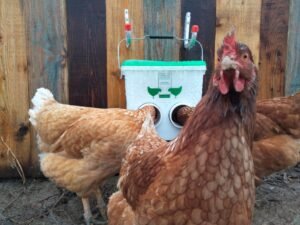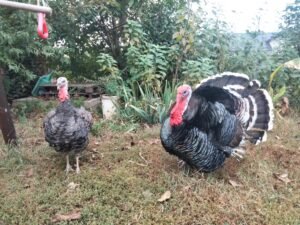Ducks are often considered the hardy cousins of the poultry world, naturally equipped with robust immune systems that make them more resistant to many common avian diseases. Their waterproof feathers, strong constitution, and adaptable nature make them excellent choices for both commercial farming and backyard keeping.
While ducks generally experience fewer health issues compared to chickens, they do face their own unique challenges. Their aquatic nature, while beneficial in many ways, can create specific health concerns if proper water management isn’t maintained. Additionally, their particular nutritional needs, especially for nutrients like niacin, require special attention to prevent developmental problems.
Common challenges in duck keeping often relate to:
- Water management and hygiene
- Specific nutritional requirements
- Foot health due to wet conditions
- Developmental issues in fast-growing breeds
- Proper housing that accommodates their aquatic nature
Understanding these specific needs and potential health issues is crucial for successful duck raising, whether you’re managing a commercial operation or keeping a few backyard ducks as pets. In this guide, we’ll explore the various health challenges that can affect ducks, categorized by their causes, and discuss how to prevent and manage them effectively.
VIRAL DISEASES:
BACTERIAL DISEASES:
FUNGAL DISEASES:
PARASITIC DISEASES:
NUTRITIONAL DEFICIENCIES:
DEVELOPMENTAL:
TOXICITIES:
When raising ducks, special attention must be paid to the use of pesticides and rodenticides, as these substances can pose serious risks to waterfowl health. Ducks are particularly sensitive to many common pest control chemicals, and their foraging behavior makes them especially vulnerable to accidental exposure.
Insecticides:
- Many common insecticides, particularly organophosphates like parathion and diazinon, are highly toxic to ducks
- Always carefully read product labels and safety instructions
- Use only waterfowl-safe pest control methods
- Consider natural alternatives when possible
- Maintain proper application distances from duck areas
- Never spray near water sources used by ducks
Rodenticides:
- Anticoagulant rodenticides (like Warfarin) can be lethal to ducks
- Death can occur through internal hemorrhaging if consumed
- Secure all rodent control stations away from duck access
- Consider duck-safe alternatives for rodent control
If you want to more accurately identify the diseases your waterfowl might suffer from, you can use this free APPLICATION.
The information provided in this article is for educational and informational purposes only. While we strive to keep the information up-to-date and accurate, it should not be considered as veterinary advice or a substitute for professional veterinary care.
Every disease situation is unique, and proper diagnosis requires examination by a qualified veterinary professional. If you suspect your birds are ill, please consult with a licensed poultry veterinarian immediately. Delayed or incorrect treatment based on self-diagnosis can lead to serious consequences for your flock’s health and welfare.

